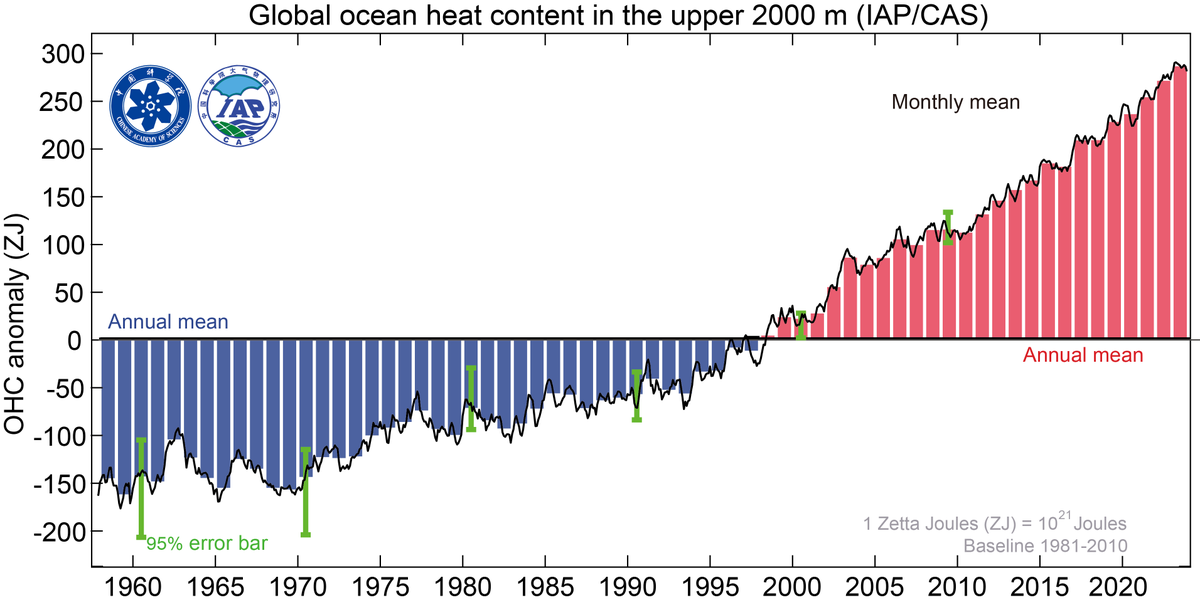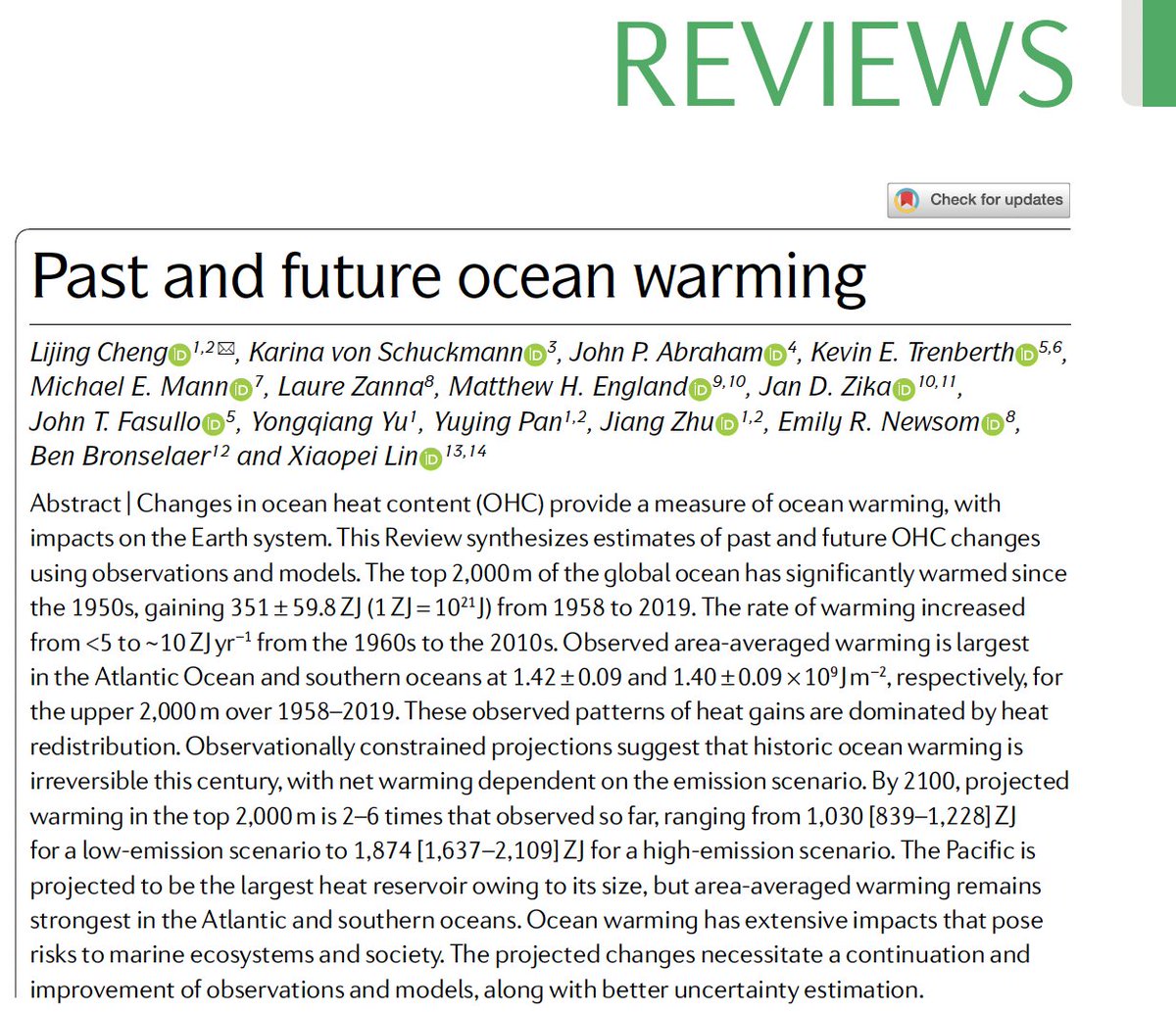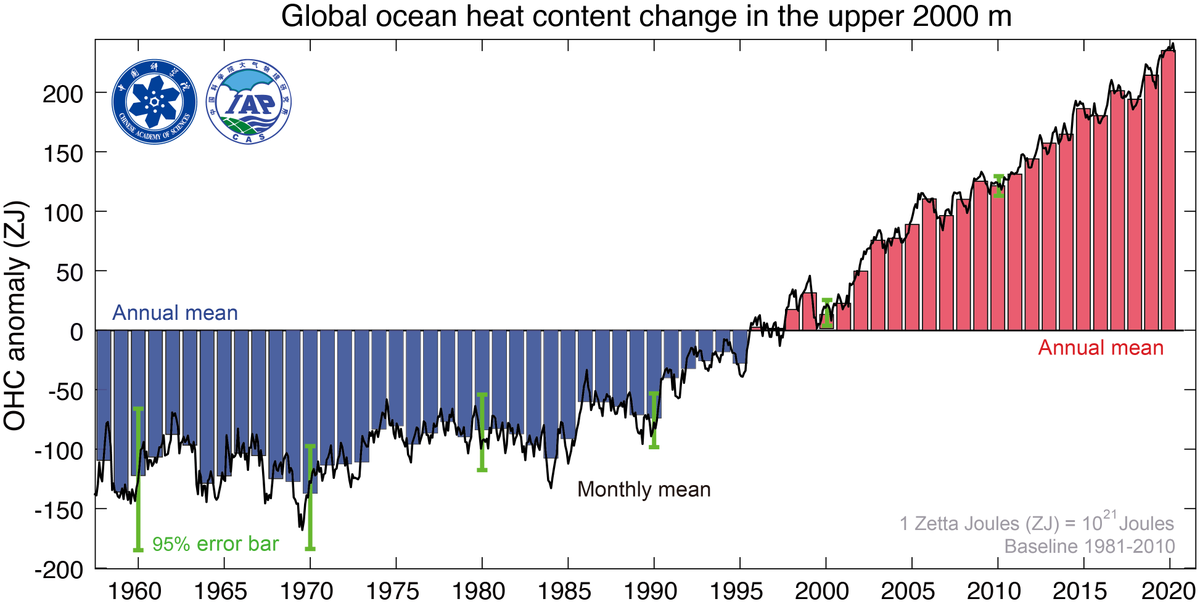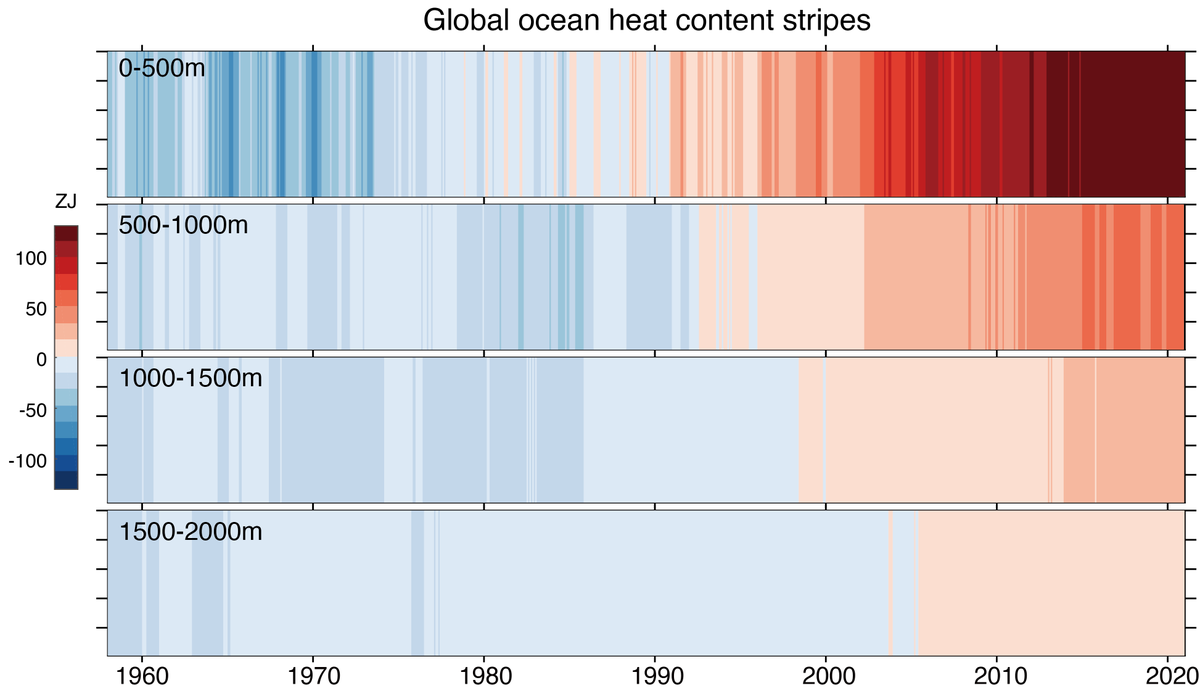[THREAD 1/9] Please to introduce our new study published in Nature Climate Change: the global ocean has become more stratified and stable since 1960 with global warming: the ocean stratification at upper 2000m has increased by 5.3%. with @MichaelEMann nature.com/articles/s4155… 

[THREAD 2/9] Sea water generally forms stratified layers with lighter waters near the surface and denser waters at greater depth (warmer waters atop colder ones). This configuration acts as a barrier to mixing that impacts the efficiency of vertical heat, carbon, oxygen exchanges 

[THREAD 3/9] As human-caused greenhouse warming has altered oceanic temperature and salinity fields, impacts to stratification are expected but the details have been difficult to discern. An example is the different estimates in two recent IPCC reports 

[THREAD 4/9] We used a carefully evaluated ocean temperature and salinity data (http://159.226.119.60/cheng/) which overcomes systematic biases associated with horizontal, vertical sampling and instruments. We used buoyancy frequency (N^2) to quantify stratification change 

[THREAD 5/9] The new data shows that ocean has become more stratified by ~5.3% since 1960 for the upper 2000m, driven by human activities. Its inter-annual fluctuation is dominated by ENSO variability. 

[THREAD 6/9] The stratification increase is deep-reaching: from near surface down to 2000m in the ocean. An even stronger ocean stratification increase, as much as ~18%, has been observed for the upper 150m. 

[THREAD 7/9] The observed increasing trend of stratification is mainly caused by stronger ocean warming for upper layers versus the deep oceans, but salinity changes play an important role locally. It is another irrefutable piece of evidence of human-driven global warming. 

[THREAD 8/9] Impact: With increased stratification, heat from climate warming cannot penetrate into the deep ocean as readily, which helps to raise the surface temperature. It also reduces the capability of ocean carbon storage, exacerbating the global warming. 

[THREAD 9/9] Impact: The increased stratification also prevents the vertical exchanges of nutrients and oxygen, and impacts the food supply of the whole marine ecosystems. 

• • •
Missing some Tweet in this thread? You can try to
force a refresh



















